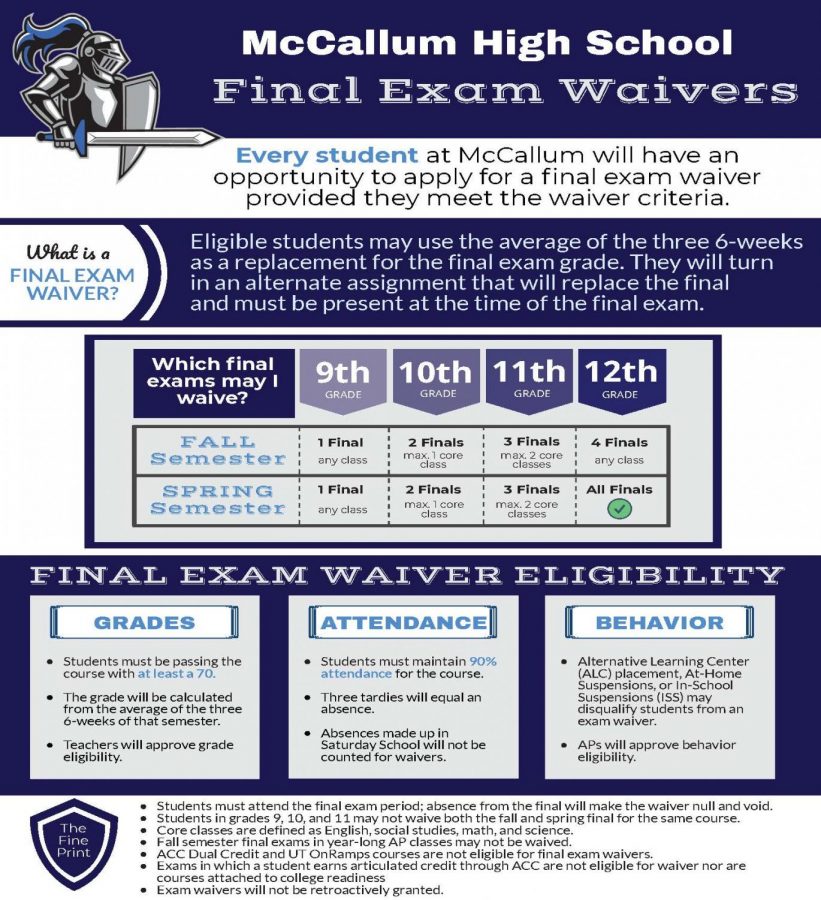Griffith unveils finals waiver policy for this semester
Students with a 70 average, 90 percent attendance and no serious behavior issues are eligible; seniors can waive eight; freshman, one
Images like this one of intense studying for finals might be less frequent on campus and in people’s homes this spring.
Principal Nicole Griffith sent out an email to students and families last Sunday announcing the introduction of a new final waiver policy.
The number of final exams students can waive varies by grade level. Freshmen can exempt one exam, and seniors can exempt up to eight in the spring semester. Grades, attendance and behavior also factor into whether students are eligible to opt out of their finals; students must have at least a 70 average, 90 percent attendance and no serious behavioral issues. If students opt out of a final, the exam grade will be replaced with the average of their three grading-period final averages, and they will be expected to complete an alternative assignment.
The waiver policy does not extend to ACC and On-Ramps classes. Students in year-long AP classes will not be allowed to opt out of their fall-semester final exams.
English teacher Diana Adamson was one of the teachers who volunteered to be on the committee that created the waiver policy. Adamson is hopeful that the policy will help students improve their attendance.
“What I think we are hoping to achieve is to bring the attendance up—maybe for some of the kids who don’t attend class as regularly as they should—thus, allowing them better grades and maybe more choices after high school,” Adamson said.
Freshman Beatrix McDaniel is excited about the new final waiver policy. While she claims her first high-school finals week ran smoothly because she was online, she believes that taking finals in person will inevitably be more stressful.
“It [the final waiver policy] is a good opportunity because final exams can cause a lot of stress,” McDaniel said. “This could be a really good thing.”
Junior Lucas Dulitsky, however, raised one concern with the policy that he feels might prevent the waiver policy from helping the very students it is intended to help.
“I would encourage administrators to revisit the attendance and behavioral aspects of the waivers as the students who typically struggle the most with final exams are those who fail to attend class regularly and behave ‘properly.’” Dulitsky said.
Adamson, however, remains optimistic about how this new waiver policy will serve McCallum students now and into the future.
“There is never going to be a perfect fit for everyone, and I think this is fair and solid,” Adamson said. “The district exam weight is really high, and the longer I teach, the more I realize that having to earn 25 percent of your entire semester grade in one two-hour sitting is overwhelming. It is an endurance thing rather than a learning thing.”

Your donation will support the student journalists of McCallum High School. Your contribution will allow us to purchase equipment and cover our annual website hosting costs.








Logan Davis • Mar 24, 2021 at 10:45 pm
I think that it’s great that we get to waive our finals. It’s been a stressful enough year as it is, and everyone at this point is just trying to survive.